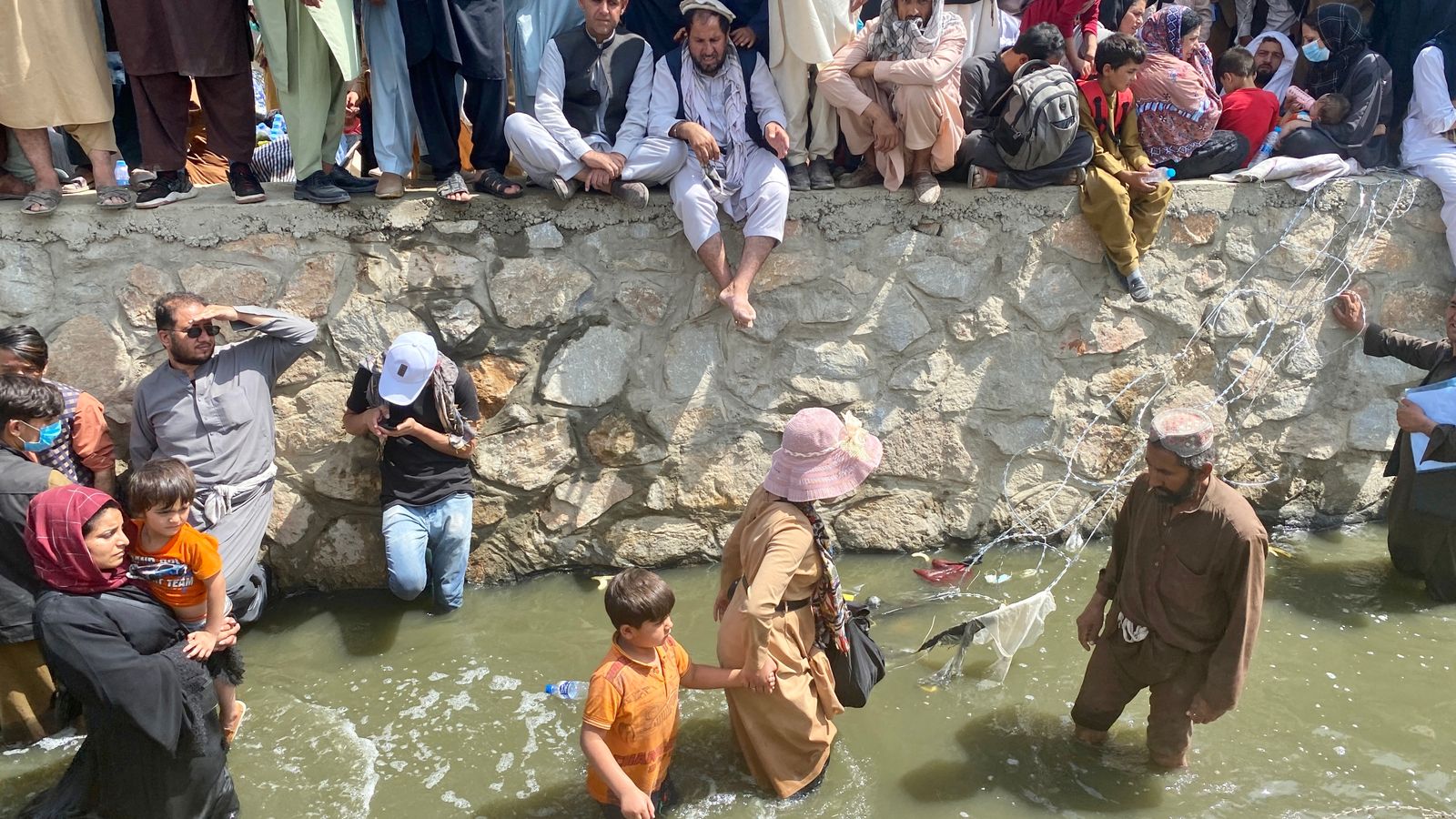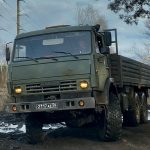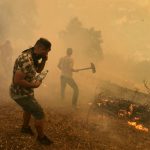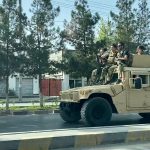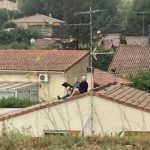The usual low-level growl of thousands of people talking, shouting and pleading on the other side of the compound wall was quieter than usual.
I emerged through the iron gates to see huge numbers of people waiting in the blistering sun for a sign that they could enter the British evacuation compound.
They seemed more subdued than normal; as if they knew their chances of reaching safety were drifting away.
They are right. This airlift is coming to an end soon.
Away from the British entrance I walked towards the noise of even more people.
They are not subdued, they are in full panic mode. This is the enormous queue of people who might still make it if they can only get someone to look at their paperwork.
It’s as bad as it gets.
Thousands upon thousands are still trapped in this no man’s land – behind them the Taliban, in front of them soldiers who have to decide who stays and who goes.
The hours are counting down towards the 31 August deadline for withdrawal, and they know it.
There are no good options left to them – stick this out, try to get the family through and onto a flight but risk failure, or go home and await whatever may happen at the hands of the Taliban and hope it’s not fatal.
Such is the desperation to be heard by the soldiers we watch as the would-be evacuees stand knee-deep in a sewage-filled canal.
The stench is indescribable.
Some have been here for days. It is very hot and there is a lack of water and food. The conditions they’re in is a cocktail just as lethal as any bullet.
When the soldiers can identify the people with the right papers for travel they are pulled from the canal. It’s not easy, as it’s a deep and sheer wall.
The soldiers and the strongest family members stoop down to grab their families and out of the water.
They emerge dripping wet but mostly relieved. And remember, this is just the point where their right to travel will be considered – they can still be rejected.
What strikes me every time I am outside, is the number of very young children enduring all of this – it really is heartbreaking.
It must be so, so scary for them. It’s noisy, and there are gunshots and shouting the whole time.
I saw a little boy sat in his father’s arms, protected from the sun by an umbrella, and an occasional stroke to comfort him. I wondered what he was thinking.
All his dad can do really is just comfort him.
The Taliban are relieving pressure on the process because they’re stopping people from coming now.
The Taliban special forces, more heavily armed than others, are now slowly taking control of the paras’ processing point.
Beyond the British lines they direct the human traffic from above. There’s no choice for the soldiers, this is the only way things can get done.
And the soldiers are absolutely exhausted. Inside the walls of their compound we walk past as they grab a few hours rest. They aren’t working shifts – these boys have done two days and two nights in a row.
They’re absolutely wiped out and they’ll be back on the barricades in a few minutes.
I don’t think they’ll ever forget this strange, unexpected tour of duty, nor does their boss.
“For many people at any age not many would’ve seen scenes such as this, but again driven by that real sense of purpose, they’ve absolutely been committed to the task, and we’ll see it through to the end,” Lt Col David Middleton told me.
“A lot has happened in a short period of time, but people have sort of risen to the challenge, accepted what has been put in front of them, and we really focused on the purpose of recovering entitled personnel, doing the mission, and doing it for a good cause,” he said.
And so this process goes on. It matters what is discussed and agreed thousands of miles away from here.
Follow the Daily podcast on Apple Podcasts, Google Podcasts, Spotify, Spreaker.
But until someone says it’s over, those who want to leave will keep trying and keep hoping.
That’s all they have left.
